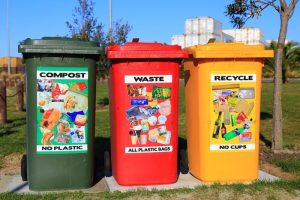Tips to Reduce Plastic Waste in your Home
Since the commencement of commercial plastic production in the early 1950s, it has become a global success and its use is growing exponentially. Due to its easy malleability, it has become the ideal material for packaging and is being used in the production of almost everything these days! However, too much of a good thing and its misuse, have led to major plastic pollution crisis of the environment.
There are huge floating trash islands polluting the Caribbean and Pacific oceans comprising of an estimated 5 trillion plastic materials and weighing around 250,000 tons. Unless we take monumental steps to curb our plastic use and dependence on single-use plastic products, it’s been estimated that by 2050, there will be more plastic than fishes left in the oceans!
Causes of Pollution
It’s been projected that Americans alone throw away 30 million tons of plastic waste every year, with only 8% of this waste actually getting recycled. The remaining goes into landfills or into the waterways from where it eventually ends up in the oceans (according to the Plastic Pollution Coalition). Interestingly, around 80% of this marine plastic litter is generated on land, mainly from improperly disposed household waste. Plastics take hundreds of years to decompose and continue to leak microplastics into the environment and creating havoc on soil and water organisms. Around 700 marine animals and bird species have been affected by this plastic pollution as they unknowingly ingest them or get entangled up in them, leading to a slow, cruel death. Humans are also consuming these microplastics as it has been found in table salt, foods, beverages and human waste. Cancer is postulated to be one of the main results.
Pandemic
The ongoing pandemic hasn’t helped much either as it has led to a further increase in the use of single-use plastics in the form of pre-packaged foods, take-away parcels as well as a huge rise in medical waste in the form of gloves, disposables, PPE kits, etc.
The fight against plastic wastes can start with a single individual. Here is a look at ways you too can contribute from your home to the ongoing war against plastics:
Avoid Plastic Bottles
Avoid buying and drinking water from single-use plastic water bottles. Around 20,000 plastic water bottles are sold every second on a global scale (according to Euromonitor International), with 480 billion bottles having been sold in 2016 alone. Astoundingly, according to the 2019 Plastic Atlas compiled by the Heinrich Boel Foundation, people drinking water from plastic water bottles also end up consuming around 130,000 microplastic plastics annually as compared to just around 4000 microplastic particles in those who drink tap water.
Disposable Plastic Utensils
Though it’s very convenient to use disposable plates, glasses, cutlery and straws, they are proving to be very dangerous to marine life. If the US alone switched to using reusable cutlery, there would be around 100 million less cutlery pieces entering the oceans annually. According to a beach cleanup data in 2018, there are around 7.5 billion plastic straws littering American beaches.
Bulk Shopping
Just by switching from buying smaller pre-packaged foods, to shopping for larger quantities from the bulk bins in your supermarkets, cuts down markedly on plastic packing material usage. Aside from the fact that it also brings down your shopping bill, buying individually packed grocery products is another way of generating excessive single-use plastic waste.
Biodegradable Packaging
Responsible businesses are becoming increasingly aware of their carbon footprint and investing in R&D to change to using innovative biodegradable materials. Several companies have now started packaging their food products such as coffee, tea and chocolates in biodegradable materials – opt for such food products to reduce dependence on plastics.
You should take a pledge as an individual and as a community to adopt anti-plastic policies and reduce your carbon footprint. Take a pledge to Refuse the usage of disposable plastics, Reduce plastic dependence, Reuse single-use plastics and Recycle whatever is possible.
Brilliant builders of apartments and villas like Vishraam Developers in Thrissur are also very aware of reducing their carbon footprint. Likewise, every home built by Vishraam builders isn’t just an architectural wonder, but is also built responsibly, without harming Mother Nature.


